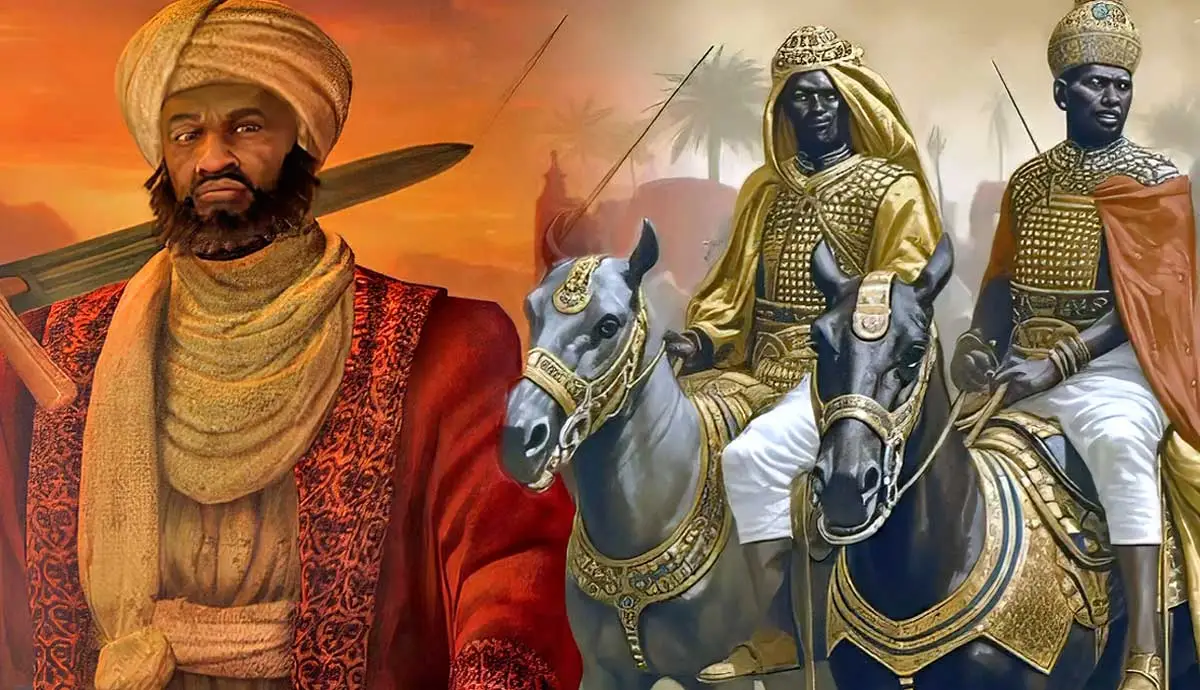The Songhai Empire was a large and powerful West African civilization from about 1450-1600.
The kingdom grew after the decline of the Mali Empire. The Songhai people broke away from Mali control after Mansa Musa's death.
Centered in the city of Gao along the Niger River, the Songhai built up a large army and expanded their territory. Eventually, they were able to control the lucrative gold and salt trade routes that crossed through their lands.
Sunni Ali took power in 1464 and became the first king of the Songhai Empire. He further expanded the empire and conquered Timbuktu and Djenné, two important centers for trade and learning.
Sunni Ali ruled for 30 years, during which time his cities grew and were fortified.
Askia Muhammad was a leading general under Sunni Ali. When the ruler died in 1492, Askia Muhammad challenged Sunni Ali's son Sunni Baru for the throne. Askia Muhammad professed that Sunni Baru was not a faithful Muslim and defeated him at the Battle of Anfao.
This established the Askia dynasty of the Songhai Empire. Askia Muhammad became known as Askia the Great and ruled the kingdom for 37 years.
At its peak under his reign, the Songhai Empire expanded to become larger than either the Ghana or Mali Empires.
His policies resulted in a rapid expansion of trade with Europe and Asia. The kingdom's gold mines continued to bring wealth.
Gold, ivory, ostrich feathers, and enslaved peoples were sent north in exchange for salt, horses, camels, cloth, and luxury goods.
After his pilgrimage to Mecca, Askia the Great brought scholars from Morocco and Egypt to Songhai and had them establish new schools. He further encouraged learning in Timbuktu by rewarding its professors with larger pensions.
Askia the Great also improved the empire's tax system to be more efficient and selected skilled officials to run his central government.
Muslim judges called qadis, ran their legal system on Muslim principles. Most of the people living in cities embraced Islam. In rural areas where most Songhai people lived, however, traditional African religions dominated.
Leo Africanus, a Spanish Moroccan traveler and writer, visited Gao and noted its wealthy ruling class: "The houses there are very poor, except for those of the king and his courtiers. The merchants are exceedingly rich and large numbers of Negroes continually come here to buy cloth brought from Barbarie (Morocco) and Europe."

A series of plots and coups by Askia's successors forced the empire into a period of decline and instability. Less skilled kings found the empire too large to control. Environmental changes also caused droughts and disease.
The wealth of its gold mines also drew the attention of invaders. The Saadi Sultanate of Morocco saw the weakened Songhai Empire as vulnerable and invaded in 1590.
Equipped with gunpowder and cannons, the Moroccan army defeated the Songhai warriors, armed only with swords and spears, at the Battle of Tondibi.
The Songhai Empire collapsed soon after, ending a 1,000-year period in which successive powerful empires controlled West Africa.

